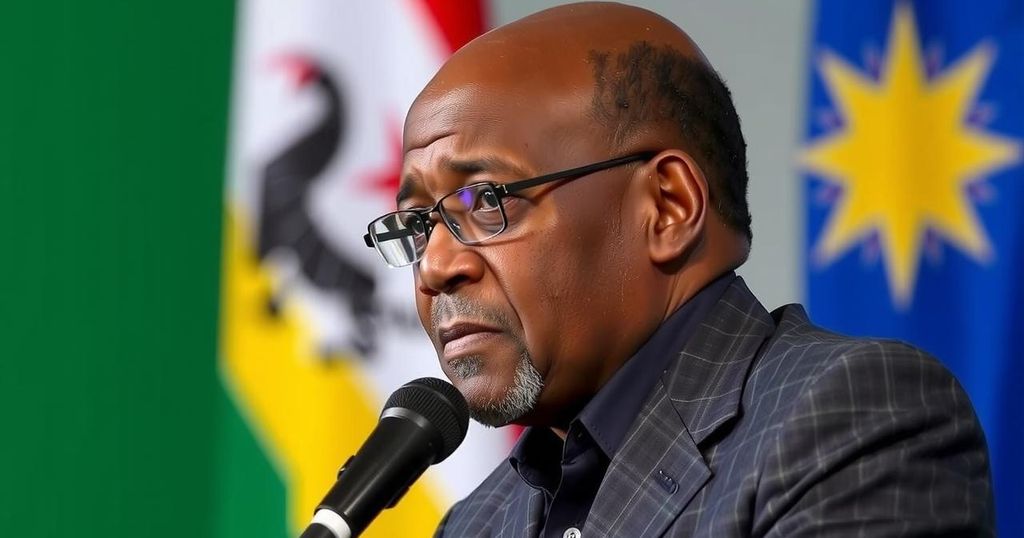Botswana’s President Acknowledges Electoral Defeat, Signaling Political Change

Botswana’s President Mokgweetsi Masisi has conceded defeat in a parliamentary election after the BDP lost its majority for the first time in nearly sixty years. The UDC, led by Duma Boko, is set to win the presidency, with Masisi acknowledging the voters’ decision and pledging support for the incoming administration. This election comes amidst economic challenges faced by the resource-rich nation, historically dependent on diamond mining, which has seen revenue declines due to market fluctuations.
In a historic shift, Botswana’s President Mokgweetsi Masisi has acknowledged his defeat in the recent parliamentary elections, marking the end of the Botswana Democratic Party’s (BDP) nearly sixty-year rule. Preliminary results indicate that the BDP has lost its parliamentary majority, paving the way for the opposition coalition, known as the Umbrella for Democratic Change (UDC), to take the lead. The private newspaper, Mmegi, along with state radio, confirmed the BDP’s significant loss, reporting results from over half the constituencies. At a press conference, President Masisi expressed his respect for the voters’ decision, stating, “Although I wanted to stay on as your president, I respect the will of the people and I congratulate the president-elect. I will step aside and I will support the new administration.” The leader of the UDC, Duma Boko, appears poised to assume the presidency, although he has yet to make a public statement regarding the victory. Analysts had anticipated a competitive electoral process, yet expectations remained that the BDP would emerge victorious. This party has governed Botswana since it gained independence from British colonial rule in 1966. Based on data from 36 out of 61 constituencies, the UDC has reportedly secured 25 seats, while the BDP has only managed to win one seat, necessitating a minimum of 31 constituencies to establish a parliamentary majority. Botswana has historically enjoyed a reputation for stability and relative economic prosperity, largely attributed to its diamond resources and a modest population benefiting from free healthcare and education. Despite this, recent downturns in the diamond market have strained government revenues, challenging the nation to diversify its economic base.
Botswana’s political landscape has been remarkably stable since gaining independence in 1966. The Botswana Democratic Party has been the dominant political force, navigating the country through both economic prosperity and challenges. The reliance on diamond mining has significantly contributed to the nation’s wealth, establishing Botswana as one of the leading diamond producers worldwide. However, fluctuations in the diamond market have necessitated a reevaluation of economic strategies, prompting debates about governance and the need for political change. Consequently, the recent election results signal a pivotal moment in Botswana’s political history as the electorate seeks new leadership in response to these economic pressures.
The concession of President Mokgweetsi Masisi signifies a substantial political transition in Botswana, ending a long-standing era of BDP governance. With the UDC poised to lead, the nation may be entering a new phase eager for change. As the opposition coalition prepares for leadership, the implications of this electoral outcome may shape both Botswana’s domestic policy and economic strategies as it navigates post-diamond market challenges. This election marks an essential moment for the democratic process in Botswana, illustrating the people’s will for sustained progress and stability.
Original Source: www.theguardian.com






